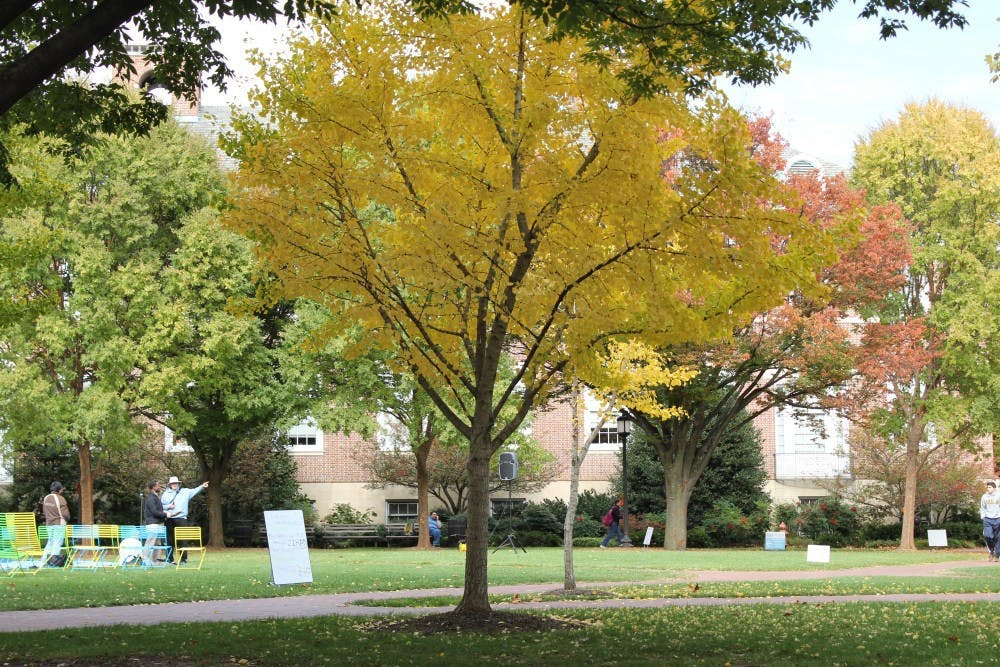In a virtual panel discussion on Oct. 22, four researchers from a range of fields were brought together by the Stavros Niarchos Foundation (SNF) Agora Institute and the William H. Miller, III Department of Philosophy to discuss the importance of intellectual humility and its role in educational institutions and democracy. Professor of Philosophy and Director of Graduate Studies Dean Moyar moderated the panel.
Moyar discussed in an interview with The News-Letter the significance of intellectual humility and its implications for today.
“Intellectual humility comes from the intersection of philosophy of religion, political philosophy and epistemology,” Moyar said. “The idea behind this panel and this project is bringing people together to talk about this idea of intellectual humility, of recognizing our limitations, to see what that could do for democracy.”
Paul Franks, a professor of philosophy and Judaic studies and of religious studies at Yale University, began the event by explaining the history of humility within the Abrahamic and philosophical traditions, emphasizing the views of philosophers such as Maimonides, Baruch Spinoza, Immanuel Kant and Georg Wilhelm Friedrich Hegel. Franks stressed the fine line between humility and arrogance and how members of society often wrestle with humility that is not necessarily related to spirituality.
2021-2022 SNF Agora Visiting Fellow Reverend Kobi Little elaborated on the Christian image of humility and detailed the dangers posed by intellectual arrogance in the political sphere.
“Intellectual arrogance ends up undermining our democracy,” Little said. “People are arrogant because of their insecurities, because of fear and because they seek to dominate other people. For many of the same reasons that individuals exhibit intellectual arrogance, we see societies exhibit intellectual arrogance."
Panelist Sara Rushing, a Montana State University associate professor of political science, offered a theory from her new book The Virtues of Vulnerability: Humility, Autonomy, and Citizen-Subjectivity. This theory is called humility-informed-relational-autonomy, which utilizes Confucian and feminist thought to create a new model for humility.
“My book argues that humility is extremely important in a democratic political context,” she said. “But it has to be paired with the desire for autonomy and the quest to be able to do things together, to make changes and achieve one’s end because otherwise humility threatens to become immobilizing.”
Andrew Perrin, an SNF Agora Institute professor of sociology in the School of Arts and Sciences, spoke about the importance of admitting mistakes within the educational and political arena.
“People have to have a level of generosity as they enter the public sphere. They have to be able to accept the possibility that they're wrong, [that they] will learn something new and [that they should] engage with this disagreement,” Perrin said.
The panelists emphasized the intersection and conflict between science, philosophy and religion in the modern world, particularly a misunderstanding of science perpetuated by the educational establishment.
“We teach science badly. We teach students to discover things that are already known, that there is a right answer and that right answer is concrete and executing,” Perrin said. “If we were to teach students science as process, as organized intellectual humility, we could create a much better kind of political subjectivity.”
Little echoed these sentiments, arguing that conflicts between science, philosophy and religion arise from intellectual arrogance.
“[There] is a desire for those fields to exert hegemony, and this superiority is a very big threat to democracy,” he said. “Our ecosystems thrive when we have diversity, and in the absence of diversity, we don't do so well.”
Graduate student Marjan Ehsassi, a member of SNF Agora Institute's Student Engagement Board, attended the event and felt inspired by the power that humility offers.
“Since the presentation, I have been thinking about ways to introduce humility into our work on and off campus,” she said. “The manner with which we approach every interaction — with or without humility — and the way in which a humble disposition has the potential to affect every exchange is powerful.”
Ehsassi explained that Hopkins students and faculty can all benefit from the power of humility.
“We must invite and engage with those who hold differing opinions. This does not require agreement with each other, but it does mean that we must create inclusive spaces for other perspectives and thoughts to be brought forward,” she said.
This attitude was reflected in the final question posed to the panelists regarding biblical and divine humility, which Franks and Little expounded upon as signs of love.
“Intellectual humility is an academic expression of love. Love is that concept, that idea, that force that I believe will keep us together and is the most sustainable platform for human interaction and will open our eyes to all of the possibilities surrounding humility,” Little said. “Respect is an expression of love; humility is an expression of respect.”





